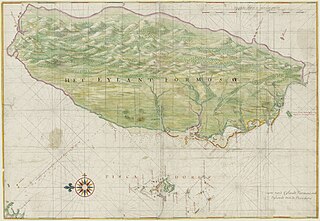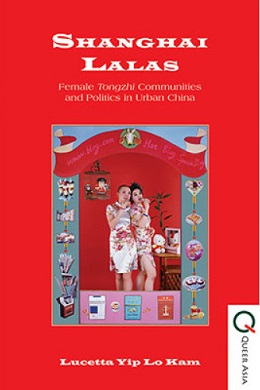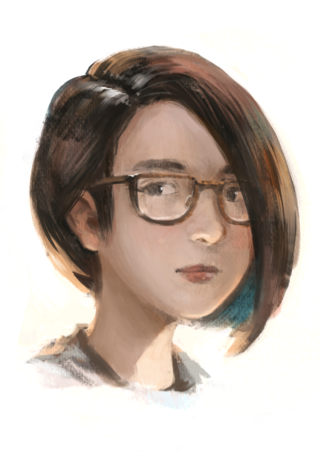Related Research Articles
Homosexuality has been documented in China since ancient times. According to one study by Bret Hinsch, for some time after the fall of the Han dynasty, homosexuality was widely accepted in China but this has been disputed. Several early Chinese emperors are speculated to have had homosexual relationships accompanied by heterosexual ones. Opposition to homosexuality, according to the study by Hinsch, did not become firmly established in China until the 19th and 20th centuries through the Westernization efforts of the late Qing dynasty and early Republic of China. On the other hand, Gulik's study argued that the Mongol Yuan dynasty introduced a more ascetic attitude to sexuality in general.

Taiwan Tongzhi Hotline Association is an organization that provides the LGBT community with peer counseling, support networks, and a community resource center. It is the first LGBT non-governmental organization (NGO) registered in Taiwan.

Transgender is an overarching term to describe persons whose gender identity/expression differs from what is typically associated with the gender they were assigned at birth. Since "transgender studies" was institutionalized as an academic discipline in the 1990s, it is difficult to apply transgender to Chinese culture in a historical context. There were no transgender groups or communities in Hong Kong until after the turn of the century. Today they are still known as a "sexual minority" in China.

Taiwan Pride is the annual LGBTQ pride parade in Taiwan. The parade was first held in 2003. Although joined by groups from all over the country, the primary location has always been the capital city of Taipei. The parade held in October 2019 attracted more than 200,000 participants, making it the largest gay pride event in East Asia. As of 2019, it is the largest in Asia ahead of Tel Aviv Pride in Israel, which is the largest in the Middle East. Taiwan LGBT Pride Community, the organizer of Taiwan LGBTQ Pride Parade, holds the parade on the last Saturday of October.

Lesbian, gay, bisexual and transgender (LGBT) people in the People's Republic of China (PRC) face legal and social challenges that are not experienced by non-LGBT residents. While both male and female same-sex sexual activity are legal, same-sex couples are currently unable to marry or adopt, and households headed by such couples are ineligible for the same legal protections available to heterosexual couples. No explicit anti-discrimination protections for LGBT people are present in its legal system, nor do hate crime laws cover sexual orientation or gender identity.
Tongzhi is a form of style used in China. It has taken on various meanings in various contexts since the 20th century.

The major religions in Taiwan are Buddhism and Taoism. In these religions, the Holy Books present no arguable issues about LGBTQ people. There are no laws about punishing sodomy, which means a sexual relationship between males is not considered an abomination, unlike in many western and abrahamic religions. However, it was long considered a taboo issue. When human rights issues were discussed in political arenas, the concept of “Tongzhi” became a key term among the politicians in Taiwan. When it emerged in political forums, Taiwanese people began to become familiar with the idea that “Tongzhi" people being a part of their culture. Yet still, LGBTQ people were not mentioned in Taiwanese law. Punishment for being part of the LGBTQ community did not exist, yet there was also not any welfare or protection for LGBTQ people.
The city of Shanghai, China, a global center for finance, technology, manufacturing, and transportation, has a presence of LGBT people.
Despite the history of colonisation and the resulting process of Westernisation since 1842, Hong Kong still embodies many aspects of Chinese traditional values towards sexuality. It is traditionally believed that heterosexuality is the nature, coherent, and privileged sexuality. Popular media marginalises and discriminates against LGBT members of Hong Kong in an attempt to maintain "traditional lifestyles".

Shanghai Lalas: Female Tongzhi Communities and Politics in Urban China is a 2012 book written by Lucetta Kam Yip-lo and published by the Hong Kong University Press. It is Volume 1 of the Queer Asia series.
This is a timeline of notable events in the history of non-heterosexual conforming people of Asian and Pacific Islander ancestry, who may identify as LGBTIQGNC, men who have sex with men, or related culturally-specific identities. This timeline includes events both in Asia and the Pacific Islands and in the global Asian and Pacific Islander diaspora, as the histories are very deeply linked. Please note: this is a very incomplete timeline, notably lacking LGBTQ-specific items from the 1800s to 1970s, and should not be used as a research resource until additional material is added.

Wei Tingting is a Chinese LGBTI+ and feminist activist, writer and documentary filmmaker. She is one of the Feminist Five.
Beijing Queer Film Festival (BJQFF), (Chinese: 北京酷儿影展), is an LGBT film festival, held annually in Beijing, the capital city of the People's Republic of China. It was the first LGBT film festival to be established in mainland China, founded in 2001 by the Chinese author and LGBT film director Cui Zi'en, a professor at the Beijing Film Academy.

Les+ Magazine is a Beijing-based community magazine. It was started in 2005 by a group of young Chinese lesbians, or lalas. Les+ is the first magazine for queer women in China, which has a growing lesbian culture.
Lala is a non-derogatory Chinese slang term for lesbian, or a same-sex desiring woman. It is used primarily by the LGBT+ community in Mainland China, though the term has origins in the Taiwanese term for lesbian, lazi. Beginning in the late twentieth and early twenty-first centuries, lala communities started to form in urban areas of China, such as Beijing and Shanghai, using bars and online chatrooms to connect.
Queer art, also known as LGBT+ art or queer aesthetics, broadly refers to modern and contemporary visual art practices that draw on lesbian, gay, bisexual, transgender, and various non-heterosexual, non-cisgender imagery and issues. While by definition there can be no singular "queer art", contemporary artists who identify their practices as queer often call upon "utopian and dystopian alternatives to the ordinary, adopt outlaw stances, embrace criminality and opacity, and forge unprecedented kinships and relationships." Queer art is also occasionally very much about sex and the embracing of unauthorised desires.
Shitou is a Chinese activist, actress, filmmaker, multimedia artist, and gay icon. She has been active in the Chinese gay scene since the 1990s and was the first lesbian to come out on Chinese television.
Queer Lala Times (酷拉时报/酷拉時報), organized and published by the Chinese Lala Alliance (CLA) is a queer electronic publication that was publicly active in mainland China from 2013 to 2016. They operated on a number of online platforms, including Douban, WeChat, and Sina Weibo in mainland China, and Facebook for other Chinese-speaking regions across the globe. The publication looked at a wide variety of topics from lesbian and adopted intersectional approaches towards gender and sexuality that go beyond the predominant voices of the gay communities in China at that time. The publication emphasized the diversity of voices and feminism in the broader Chinese-speaking context.
References
- ↑ Law, Benjamin (2014-04-21). Gaysia: Adventures in the Queer East: Adventures in the Queer East. Cleis Press. p. 91. ISBN 978-1-62778-053-7.
- ↑ Engebretsen, Elisabeth L. (2013-10-30). Queer Women in Urban China: An Ethnography. Routledge. pp. 124–144. ISBN 978-1-136-19905-9.
- ↑ Beijing Review. Beijing Review. 2005. p. 45.
- 1 2 U, Ling (2008). Advocating at the margins: women's NGOs in China. Colby College.
- ↑ Suda, Kimiko (2009). "Die "Lala community" in Beijing im Sommer 2008 - zur Selbstorganisierung lesbischer Frauen in der VR China". Femina Politica. 21: 129 – via Google Scholar.
- ↑ Tellis, Ashley; Bala, Sruti (2015-10-30). The Global Trajectories of Queerness: Re-thinking Same-Sex Politics in the Global South. BRILL. ISBN 978-90-04-21794-2.
- ↑ Shi, Liang (2014-10-23). Chinese Lesbian Cinema: Mirror Rubbing, Lala, and Les. Lexington Books. p. 85. ISBN 978-0-7391-8848-4.
- ↑ "LGBT Activism in Mainland China". 30 November 2001. Retrieved 2020-02-11.
- ↑ GUO, Lifu (2018-07-31). Tongzhi Solidarity under Chinese Authoritarian Government : A Case Study of the Beijing Tongzhi Center. 東京大学大学院総合文化研究科・教養学部アジア地域文化研究会. pp. 80–83. OCLC 1060467553.
- 1 2 Storm, Carsten (2018-05-15). Connecting Taiwan: Participation – Integration – Impacts. Routledge. ISBN 978-1-351-26894-3.
- ↑ Dubel, Ireen. Hielkema, André (André M.M.) (2010). Urgency required : gay and lesbian rights are human rights. Humanist Institute for Cooperation with Developing Countries (Hivos). p. 180. ISBN 978-90-70435-05-9. OCLC 642833790.
{{cite book}}: CS1 maint: multiple names: authors list (link) - ↑ Khor, Diana; Kamano, Saori (2006). Lesbians in East Asia: Diversity, Identities, and Resistance. Routledge. p. 123. ISBN 978-1-56023-691-7.
- ↑ Engebretsen, Elisabeth L. (2013-10-30). Queer Women in Urban China: An Ethnography. Routledge. ISBN 978-1-136-19904-2.
- ↑ Zheng, Bo (2012). The pursuit of publicness : a study of four Chinese contemporary art projects (Thesis). hdl: 1802/25139 .